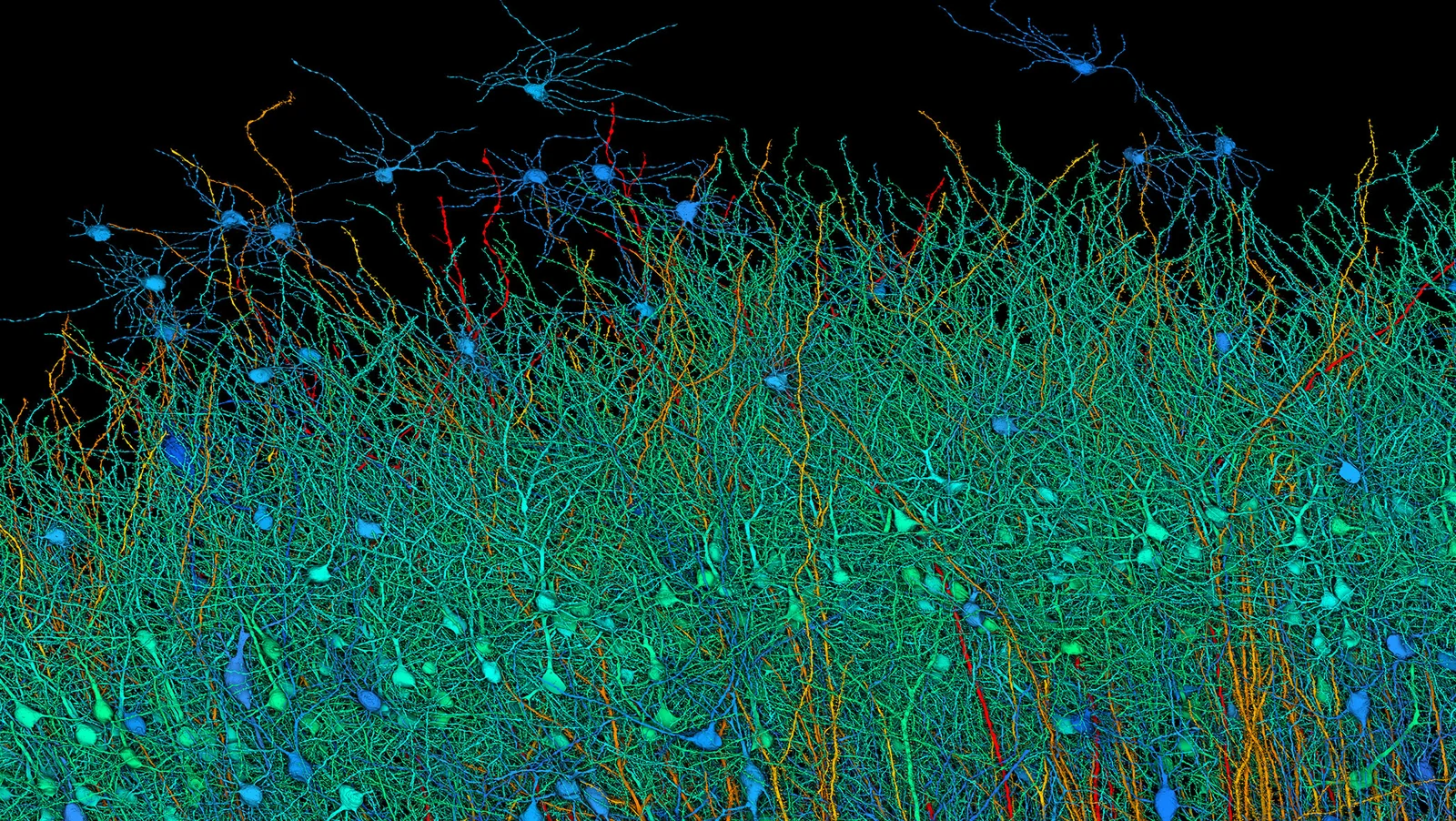
A recent attempt to fully map a mere cubic millimeter of a human brain took up 1.4 petabytes of storage just in pictures of the specimen. A collaborative effort between Harvard researchers and Google AI experts took the deepest dive yet into neural mapping with the recent full imaging and mapping of the brain sample, making puzzling discoveries and utilizing incredible technology. We did the back-of-napkin math on what ramping up this experiment to the entire brain would cost, and the scale is impossibly large — 1.6 zettabytes of storage costing $50 billion and spanning 140 acres, making it the largest data center on the planet.
The study is full of mind-numbing stats. To image a human brain, the researchers needed to utilize Google's machine learning tech, shaving estimated years off of the project. Scientists first sliced the sample into 5000 wafers orders of magnitude thinner than human hair. Electron microscope images were taken of each slice, which were recombined to count around 50,000 cells and 150 million synapses, the connection points where neurons meet and interact. To recombine these images and map the fibers and cells accurately, Google's AI imaging tech had to be used, digitally working out the routes of the gray matter.
The synthesized images revealed many exciting secrets about the brain that were previously totally unknown — some cell clusters grew in mirror images of one another, one neuron was found with 5,000+ connection points to other neurons, and some axons (signal-carrying ends of nerves) had become tightly coiled into yarn ball shapes for totally unknown reasons. These and other discoveries made in the course of research excited their scientists beyond reason. Jeff Lichtman, a Harvard professor said to The Guardian on the project, "We found many things in this dataset that are not in the textbooks. We don’t understand those things, but I can tell you they suggest there’s a chasm between what we already know and what we need to know."
For context on the size of the brain sample and the data collected from it, we need to get into mind-numbingly colossal numbers. The cubic millimeter of brain matter is only one-millionth of the size of an adult human brain, and yet the imaging scans and full map of its intricacies comprises 1.4 petabytes, or 1.4 million gigabytes. If someone were to utilize the Google/Harvard approach to mapping an entire human brain today, the scans would fill up 1.6 zettabytes of storage.
Taking these logistics further, storing 1.6 zettabytes on the cheapest consumer hard drives (assuming $0.03 per GB) would cost a cool $48 billion, and that's without any redundancy. The $48 billion price tag does not factor in the cost of server hardware to put the drives in, networking, cooling, power, and a roof to put over this prospective data center. The roof in question will also have to be massive; assuming full server racks holding 1.8 PB, the array of racks needed to store the full imaging of a human brain would cover over 140 acres if smushed together as tightly as possible. This footprint alone, without any infrastructure, would make Google the owner of one of the top 10 largest data centers in the world, even approaching (if not reaching) the scale of Microsoft and OpenAI's planned $100 billion AI data center.
All of this is to say the human brain is an impossibly dense and very smart piece of art, and the act of mapping it would be both impossibly expensive (we didn't even begin to guess how long it would take) and likely foolish. Just because mapping is done does not mean that scientists would know what to do with the maps, as just the one-millionth piece of the brain we have mapped will pose questions for researchers for likely years to come. Thankfully, we apparently don't need to know everything about the brain to start meddling with it; in case you missed it, Elon Musk's Neuralink has begun rolling out to very early adopters. And if you want more on Google's efforts in the AI space, OpenAI is not playing very nice with them today.


.png?w=600)




